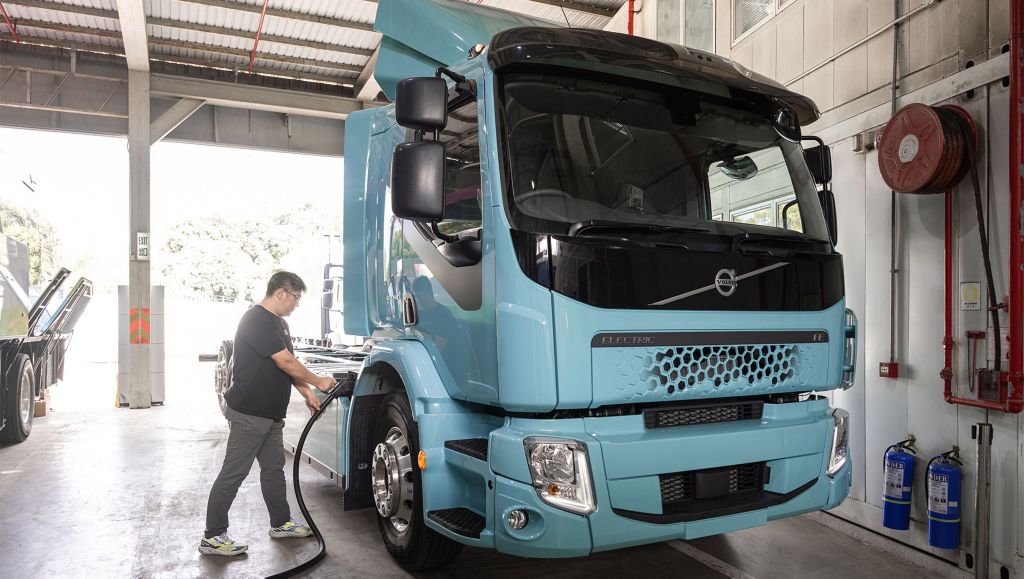Volvo Trucks is moving forward in its Sustainability journey across Southeast Asia markets


The sustainable transport product line is now being made accessible in new areas in Southeast Asia, which has made this quarter exciting. The trend is clear: many of our clients are already starting their own transition to electric, even if there isn't much of a market for electric trucks. By 2030, we aspire to be the driving force behind a move toward electric vehicles that will account for 50% of all new trucks sold globally.
According to Ms. Anna Engblom, Managing Director for Southeast Asia & Japan at Volvo Trucks, "Our commitment to sustainable transport is definitely paying off. We've positioned a selection of the electric models across markets like Taiwan, Singapore, and Hongkong. We're committed to collaborating closely with our clients to decarbonize truck transportation. Additionally, she stated, "Governments play a big part in determining how rapidly countries switch to sustainable transportation. To accelerate adoption, a number of progressive countries are taking the lead by using financial incentives, targeted tariffs, environmental zones, and other strategies. Therefore, ensuring that we stay at the forefront of the same is one of our important priorities.
We further strengthened our brands position as a leader in electric truck transport. It could seem like a major step to transition to electromobility. Many markets nowadays are starting talks with customers after strapping their running shoes. We are here to make sure customers have the precise trucks and services they need to meet their demands for efficiency and performance all the way through the daily planning and management of their operation.
Customers interested in sustainable transportation should utilize the 'Environmental Footprint Calculator' to determine the whole environmental impact of their trucks, which includes CO2 emissions, raw material extraction, manufacturing resources, and recycling emissions. This tool offers a comprehensive perspective of how various decisions might impact environmental footprints and makes it simple to compare various options. For instance, based on mileage and energy mix, an electric Volvo truck may be compared to a gas or diesel-powered vehicle. Customers may use this knowledge to lessen the environmental impact of their supply chain, which could result in additional contracts.
Since Volvo Trucks started producing fully electric trucks in 2019, the company has taken orders for 6,000 electric trucks in 42 countries around the world. Volvo now produces electric trucks in four factories in Belgium, France, Sweden, and the US. The company’s target is that half of its global sales of new trucks will be electric by 2030.
We are looking forward to be a part of the exciting growth opportunity on our path called progress.
Manisha Kanjiani
Brand & Communication Manager, Volvo Trucks – SEA & Japan
Email: manisha.tulsidas.kanjiani@volvo.com
Volvo Trucks supplies complete transport solutions for discerning professional customers with its full range of medium- and heavy-duty trucks. Customer support is provided via a global network of dealers with 2,300 service points in about 130 countries. Volvo trucks are assembled in 12 countries across the globe. In 2022 approximately 145,000 Volvo trucks were delivered worldwide. Volvo Trucks is part of the Volvo Group, one of the world’s leading manufacturers of trucks, buses, construction equipment and marine and industrial engines. The group also provides complete solutions for financing and service. Volvo Trucks’ work is based on the core values of quality, safety and environmental care.